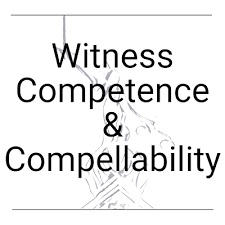In this article we shall study statements by persons who cannot be called witnesses particularly with respect to dying declaration. A fact to be proved by oral evidence must be stated before the court by a person who has first-hand knowledge on the facts to be proved. Second-hand evidence is loosely termed as hearsay evidence. […]
Author: Hemant More
Section 24 to 30 of Indian Evidence Act deal with relevancy of `Confession’ in criminal proceeding. The term “Confession” has not been defined in Indian Evidence Act. In simple words `confession’ means admission or acknowledgement of guilt by person accused of crime. Sir Stephen in his Digest of the Law of Evidence has defined that […]
Awards and Settlement
The Industrial Dispute Act, 1947 which extends to the whole of India came into operation on the first day of April 1947. As per Preamble of the said Act, it is enacted to make a provision for the investigation and settlement of the dispute and certain other purposes such as recovery of money from the […]

According to Section 17 of the Indian Evidence Act, 1872 an admission is a statement, oral or documentary or contained in electronic form, which suggests any inference as to any fact in issue or relevant fact, and which is made by any of the persons, and under the circumstances, hereinafter mentioned. Section 17 IEA defines “Admissions” […]

According to Section 17 of the Indian Evidence Act, 1872 an admission is a statement, oral or documentary or contained in electronic form, which suggests any inference as to any fact in issue or relevant fact, and which is made by any of the persons, and under the circumstances, hereinafter mentioned. Section 17 IEA defines “Admissions” […]
Kinds of Witnesses
Witnesses play a very important role in the dispensation of justice in its totality. At the initial stage of investigation, a witness guides the Investigating Officer (I.O.) in the right lines thus helping him arriving at correct findings about facts and circumstances of the crime. It is not exaggerated to say that no prosecution case […]

Witnesses and documents are the main sources of evidence. A witness (Testis) is a person who gives evidence before any court. As per Bentham, witnesses are the eyes and ears of justice. Witnesses can be the person who gives valuable input for the case. It is through witnesses and documents that evidence is placed before […]
Science > Physics > Wave Motion > Effect of Temperature on the Speed of Sound In the last article, we have studied the factors affecting the velocity of sound. In this article, we shall solve numerical problems to study the effect of change of temperature on the velocity of sound. Example 01: At what temperature […]
Science > Physics > Wave Motion > Factors Affecting Speed of Sound in a Gas In the last article, we have seen expression for speed of sound in a gas. In this article, we shall study different factors affecting the speed of sound. Laplace assumed that the process of propagation of sound as an adiabatic […]
Speed of Longitudinal Waves
Science > Physics > Wave Motion > Speed of Longitudinal Waves In this article, we shall study to solve problems to find speed of longitudinal waves in fluids, solids, and rods. Expression for velocity of longitudinal wave in a fluid using dimensional analysis: The velocity (v) of longitudinal wave through a fluid is found to […]